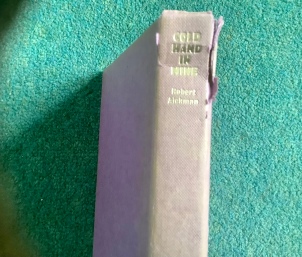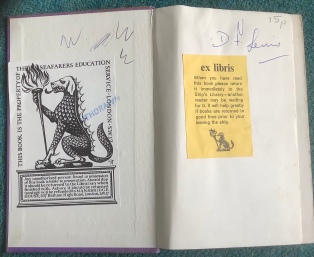Still Point Of The Turning World
THE REAL ROAD TO THE CHURCH by Robert Aickman
“…all things become symbolic of all other things. Not that that was in itself untrue: though it was only one truth, of course. And when one admitted that there were many truths existing concurrently, upon which of them could one possibly be thought to stand firm — let alone, to rest?”
…being akin to the art of fiction — and to today’s ‘alternate facts’ in politics, here presaged by Aickman.
This is the story of Rosa, now living at La Wide, the dislocated house to which, in this French speaking land, she has resorted, so as to escape a lifetime of misalliances with various men, men whom she figuratively parades in front of us, referring to the various behaviours of each rogue by his name, just after rubbing herself vigorously with a bath towel.
We learn of the community’s social categorisation, including the class of people who seem always to be neither drunk nor sober in constant bars and restaurants… The crop by which these people live are tomato-plants for the nurture of which by fuel of coal deprives Rosa herself of coal.
Rosa as a person lives for us fully by dint of Aickman’s artful characterisation and that includes the relationship with her ‘char’ called Mrs Du Quesne, a woman whose seeming connection with Hardy’s Tess defeated me.
Meanwhile, is often unladylike Rosa simply “sensitive” or “a sensitive”? — and such a quandary forms the backdrop to the main plot line of La Wide being sited upon the pathway’s point whereat “porters” change shift when toting coffins and their contents to a final resting place, about which ritual Rosa has a strange conversation with a darkly inscrutable cleric on a clifftop path before herself being involved (whether naked or not from her bath, I am not fully sure) in whatever happens during one of these haunting funerary transactions outside her house.
Is Rosa a Ghost or Goddess? Self or Doppelgänger? — questions that hang about in my mind after finishing this story. And whether or not the porters take Rosa onward, too, upon their path, and if so whether to a church or a temple? While her discarded clothes remain at La Wide hanging on pegs like vampire bats.
At the end, satisfyingly for me, time ticks more and more slowly… and I wonder if the whole of Aickman’s work was fundamentally geared to T.S. Eliot’s ‘still point of the turning world’ whereby the ill-resolutions and desires between genders, opposite or same genders alike, as well as all humanity’s hopes and despairs, can be parked at least for a while… a ‘while’ that is still transpiring even now as we ‘porters’, upon the pathway of life and death, change shift…
Which perhaps brings us full circle to the head-quote above.
“Daily life is entirely a matter of the pattern men and women impose upon it…”
All my reviews of Aickman: https://dflewisreviews.wordpress.com/robert-aickman/


No comments:
Post a Comment